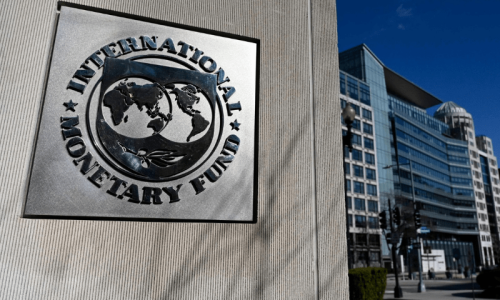ISLAMABAD: Chief Justice of Pakistan Mian Saqib Nisar said on Monday that the Supreme Court had never exceeded its limits and that the people of the country had confidence in the apex court.
Addressing the launching ceremony of the Police Reforms Committee’s report — “Police Reforms: Way Forward” — organised by the Law and Justice Commission of Pakistan (LJCP), he said the Supreme Court had disposed of 85 per cent cases and provided relief to people.
Explore: Judicial overreach?
He said people wanted positive change and the rule of law in the country. He said that every action he had taken as CJP was within the parameter of the law, adding that he had never exceeded his constitutional mandate.
The CJP said the police reforms constituted an integral part of the criminal justice system reforms. Since the independence of the country about two dozen reform initiatives had been undertaken, however, desired results could not be achieved, he added.
Justice Nisar says relief has been provided to people by apex court
He emphasised the importance of the rule of law and an efficient criminal justice system in society. He stated that the police had a crucial role in protecting the right to a fair trial and in the prevention and investigation of crimes.
Also read: Why 2018 was CJP Nisar's year
According to the CJP, an effective police force is one that is assisted by the community they serve as people are confident that justice will be done.
He stressed that the existing criminal justice system urgently required reforms as a whole. Especially upgrade of the law for governance and management is required to ensure a neutral, responsive, accountable and transparent police force. The police force could only function efficiently when they were given administrative, operational and financial autonomy, he added.
CJP Nisar said that the Police Reforms Committee was established with the objective of an independent and impartial police force and its recommendations were very useful because they outline the duties of police officers, the separation of investigation procedures and composition of the Commission to promote transparency.
He stated that by implementing these recommendations, trust deficit between police and public would decrease and it would create a competent, efficient and responsive police force.
The CJP applauded efforts and contribution of members of the Police Reforms Committee, saying that they worked day and night to complete the report.
In his concluding remarks, CJP Nisar stressed the need for de-politicising the police to develop public confidence in the system. He stressed that there was a need to pinpoint lacunae in investigation resulting in the acquittal of criminals.
Report on police reforms
A steering committee headed by Justice Asif Saeed Khan Khosa, senior puisne judge of the Supreme Court and the designated chief justice of Pakistan, worked on the implementation of recommendations.
The convener of the Police Reforms Committee and former inspector general of Sindh Police, Afzal Ali Shigri, stated that performance of police was directly linked to the delivery of justice and performance of judiciary and criminal justice system.
He said in the past several efforts had been made to improve the performance of the criminal justice system. But, he added, the current initiative had the distinction that it was taken by the Supreme Court.
Mr Shigri said after formation of the Police Reforms Committee intensive deliberations and discussion were held within the committee. He said the report contained feasible and practical proposals on matters, like the redressal of grievances and improvement in the quality of investigation.
Mr Shigri also presented the report on police reforms to CJP Nisar.
The report recommends certain measures, such as establishment of “complaint redressal mechanism” at the office of the city police officer headed by an officer of additional inspector general rank in provinces and deputy inspector general in Islamabad.
It stresses the need of imparting best training to police officers, revamping urban policing and introducing forum for alternative dispute resolution (ADR).
Published in Dawn, January 15th, 2019















































